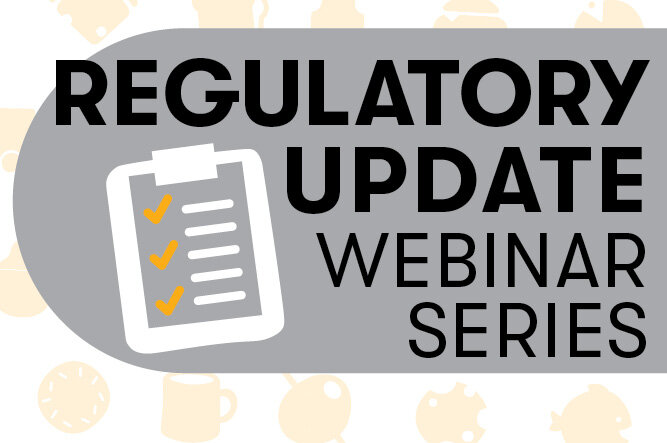For many consumers, a new year signifies the opportunity to make healthier lifestyle choices, starting with the foods they eat. The webinar, “Labeling Food Products as Natural and Healthy - Could Legislative Solutions Offer a Way Forward?” with Jeni Lamb Rogers, associate general counsel, supply chain, Branded, couldn’t be timelier, as 2022 brings a renewed interest in the terms “natural” and “healthy.”
Since natural and healthy products are more attractive to consumers, they are willing to pay more for them. As a result, making these claims on packaging is tempting. According to Rogers, 93 percent of consumers want to eat healthy at least some of the time. But is it possible to make such broad claims while avoiding litigation?
The FDA has considered the term "natural" to mean “nothing artificial or synthetic (including all color additives regardless of source) has been included in, or has been added to, a food that would not normally be expected to be in that food.” Rogers explained that the FDA’s definition of “healthy” is outdated when compared with modern science on nutrition and health. She reviewed that the definition includes low fat (3g or less per Reference Amounts Customarily Consumed for a less than 30g), low saturated fat (1g or less per RA and less than 15 percent of calories per RACC), cholesterol (60mg or less per labeled serving), and the addition of something beneficial to the diet (at least 10 percent of the Recommended Dietary Intake or the Daily Reference Values per RA of one or more of vitamin A, vitamin C, calcium, iron, protein, fiber).
Rogers mentioned after the Kind bar battle, enforcement discretion led to allowing certain products that:
• Are not low in fat, but have a fatty acid profile made up primarily of mono and polyunsaturated fats declared on the label
• Provide 10 percent or more from Vitamin D and Potassium
• Promote “healthy” as a brand lifestyle ethos rather than a specific product claim
The regulatory uncertainty around “healthy” and “natural” claims can lead to litigation, Rogers said. One of the main issues lies in the “reasonable consumer standard.” This perspective is not of an educated, specialty food industry professional or even foodie, but an individual of average intelligence, that can read a label, but has no specialized knowledge. Rogers warned this may lead to consumer fraud and class action lawsuits based on natural and healthy ambiguous terms, because assumptions can be made. Rogers also warned that a product may comply with applicable law and still be misleading under state false advertising laws. Common lawsuit forms Rogers has seen include:
• Healthy
• High Sugar Content
• High Added Sugar Content
• Heart healthy
• Health Halo
• Glyphosate
• Natural
• Synthetically produced Citric Acid
• Synthetically produced Malic Acid
• Propylene glycol in natural flavors and products labeled 100 percent natural
• GMO product or products containing GMOs now requiring BE disclosure
• Glyphosate
Lastly, Rogers stated there have been efforts to clarify the definition of healthy and natural. Citizen petitions to the FDA for clarity led to a solicitation of comments on a definition during the Obama administration. Rogers said she hopes there is some possibility that the new FDA Commissioner, Robert Califf, will reopen the comments again. Also, the Food Labeling Modernization Act strives to make changes to clarify the definitions of natural and healthy and reduce the number of consumer fraud cases. This very comprehensive food labeling bill may be realistic for the first time, according to Rogers, as Democrats are in the House, Senate, and Administration. If this is something you are interested in, she advised downloading and studying the bill, and submitting any questions to [email protected] for future webinar coverage, watching developments closely as you visit or engage with your representatives, comment on what this means for the industry, and do not discount the value of a well drafted letter and a follow up call from a constituent.
Please register to watch this Regulatory Update webinar on demand here.
Related: Regulatory Concerns Top of Mind for 2021; Regulatory Movement Amid the Pandemic.
Disclaimer: This presentation is designed to provide general information on pertinent legal topics, and the statements are made for educational advice. They do not constitute legal advice, and do not represent the views of BRANDED, or any of its attorneys, other than Jeni Lamb Rogers. This presentation is not intended to create an attorney-client relationship between you and Jeni Lamb Rogers. If you have specific questions as to the application of the law to your activities, you should seek the advice of your legal counsel.

